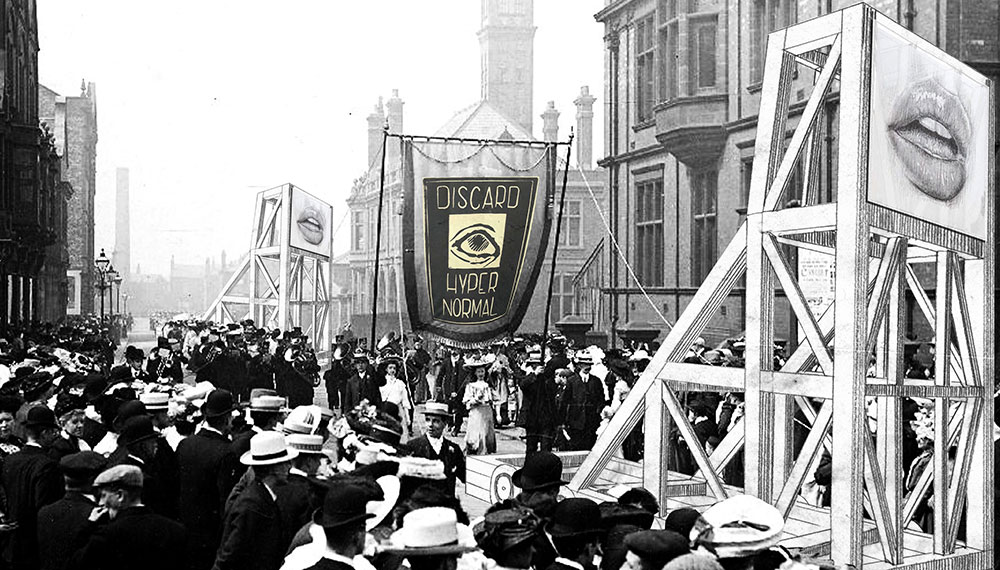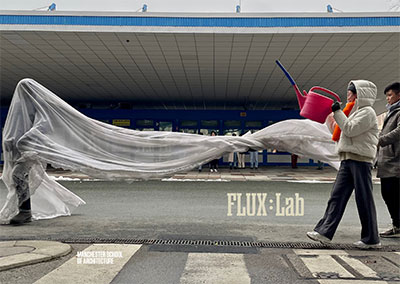Architecture in FLUX
Our atelier is focused on establishing an open urbanism that recognises that the city is always being made;
Establishing a state of change
The process by which we make our cities in the UK has been handed down from an era of empire where consuming materials was seen as progress and hate crimes were legal. Inequality and climate change are baked into city-making. If tomorrow’s cities are to construct a more equitable and diverse public realm, then we need to start here and now with reimagining how we practice architecture and with whom.
Teaching in FLUX
Our starting point is that each student writes their own brief and programme in response to the live transformation of the city, each determiningwhat our matters of concern and care are. This happens in dialogue with the property developer for the area (U+I-Landsec) and with the people we encounter and seek out along the way. Our individual programmes are developed through a series of one week ‘labs’, incrementally testing and re-testing propositions for the Mayfield regeneration area of Manchester City Centre (andfor Lab5, Chemnitz, Germany)as we go along.
- FLUX:Lab1 ‘Grit Walks’
- FLUX:Lab2 ‘Atmospheres’
- FLUX:Lab3 ‘Awakenings’
- FLUX:Lab4 ‘Taxonomy of Lines’
- FLUX:Lab5 ‘Choreographic Object’
Situated Practice
Each Lab delves into the temporality of architecture and establishes an open urbanism through inscriptive, mobile and improvisational practices. These afford us the opportunity to work both at the scale of the city and in person at a 1:1 scale.
The U+i-Landsec developer’s brief to FLUX in 2022-23 has been to investigate how architecture could activate a reconnection to this lostpart of thecity. Some projects have explored assumed ownership of undeveloped sites outside of their ownership ‘red line’.
In semester two the 5thyears (MArch 1) applied what they had learnt to the self-styled Manchester of the East, in anticipation of Chemnitz’s European Capital of Culture in 2025.



